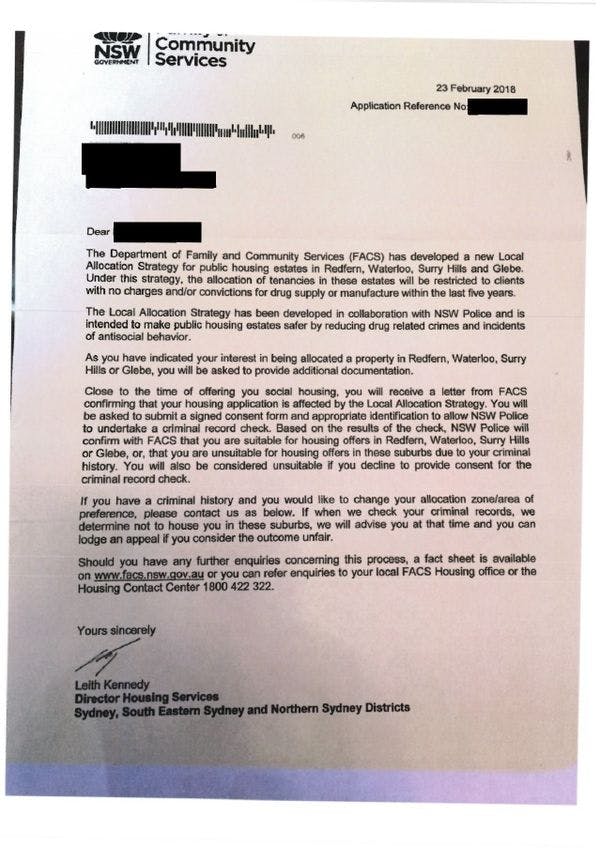Guardian/ Scribd
Exclure les personnes ayant commis des infractions liées aux drogues de l’accès aux logements sociaux constitue un « précédent troublant »
Priver de leurs droits les personnes qui ont été condamnées antérieurement pour des infractions liées aux drogues ne fera qu’attiser l’exclusion sociale. Pour en savoir plus, en Anglais, veuillez lire les informations ci-dessous.
Social workers operating in Sydney’s inner city public housing estates have slammed a new policy that denies homes to those with a history of serious drug offences, saying it sets a “troubling precedent” that further marginalises people trying to leave their past behind them.
The New South Wales government announced this week it would bar anyone either recently charged or convicted of drug supply or drug manufacture offences from accessing public housing in Sydney’s inner suburbs.
Letters were sent to staff and clients at the Community Restorative Centre, the city’s largest non-government organisation working with recently released prisoners, warning them of impending criminal checks for those on public housing waiting lists in Glebe, Waterloo, Redfern and Surry Hills.
The government says public housing towers in the suburbs have become unsafe, and the policy is designed to crackdown on drug-related harm.
But Community Restorative Centre program director, Mindy Sotiri, said the policy does nothing but shift the problem elsewhere, without addressing the complex root causes that drive drug offending.
Sotiri’s organisation works with former prisoners with complex backgrounds before and after release, helping them to reintegrate, rebuild their lives, and avoid further offending.
She said she was stunned to see the letter last week.
It was “clearly discriminatory”, she said, and would disproportionately affect Indigenous Australians, who make up 25% of all people released from prison in this area.
Sotiri fears the policy sets a dangerous precedent of further punishing and marginalising people already dealt with by the courts.
“The key thing for me is that this is a really troubling precedent that extends punishment beyond the judicial system, which really has not worked anywhere,” Sotiri told Guardian Australia.
